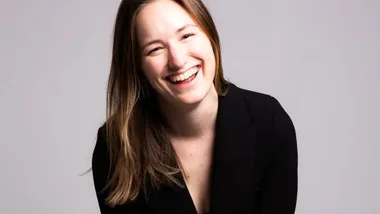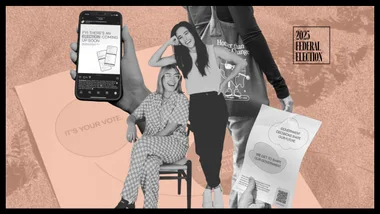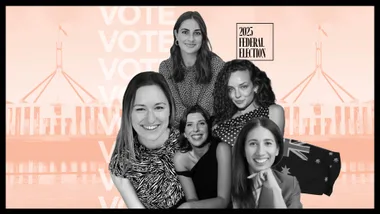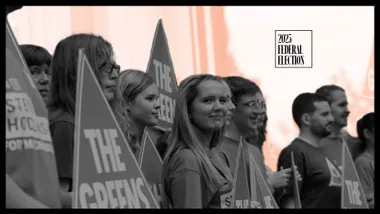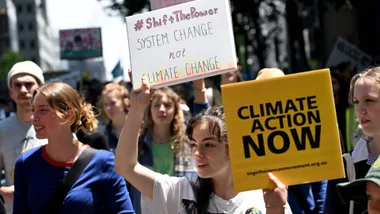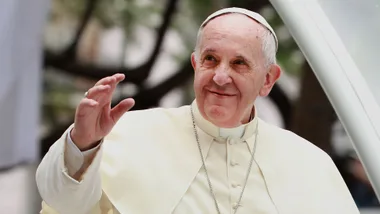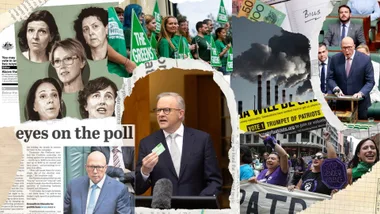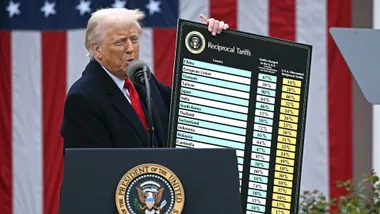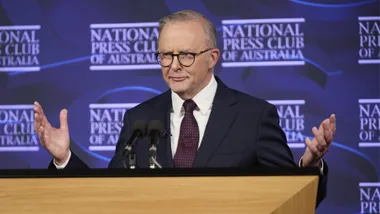Jacqueline Maley is a political columnist with The Sydney Morning Herald
Few politicians would say no to a one-on-one interview with a beautiful, articulate journalist who gently coaxed you to open up about your passions, your home life and your beloved mother, all while gazing at you with limpid eyes.
And if this sweet-faced interrogator happens to be your wife, so much the better.
Male politicians have long invited their wives to campaign with them, but this week Bill Shorten took the convention to the next level when he released a video of himself being interviewed by his wife Chloe.
She looks at him lovingly as she questions him about their weekend routine (filled with sports matches and ballet classes), and his dear deceased mother, who, he explains, encouraged him to be an auto-didact.
This election campaign, Australia is being introduced to Chloe Shorten for the first time. We already know Lucy Turnbull a little, as her own career as Lord Mayor of Sydney (among other things) brought her under the public gaze decades ago.
Mrs Shorten, a former journalist, has had a less high-powered professional life than Mrs Turnbull.
But both women are intelligent professionals who seem as though they might even use the “F” word to define themselves.
There has never been a more exciting time to be a political wife.
Whereas once upon a time, she was there to support her husband and soften his image, to decorate the Lodge but otherwise stay out of the limelight, now she is allowed, encouraged even, to have her own career.
This represents progress.
Because apart from humanising her husband for the voterly public, the political wife is also seen as having his ear. And if she an independent, working woman who has some experience with work/life balance, and believes girls should fulfil their potential, then she can only be a good policy influence on her husband, right?
That’s certainly what he wants us to believe.
But though the model of the political wife may be changing, it’s hard not to be just a touch cynical about the trotting out of families that occurs every election.
“It’s hard not to be cynical about the trotting out of families that occurs every election”
Day-to-day politics is a famously un-family-friendly business, but during election campaigns, wives are publicised and even romanticised.
They are the mirror that reflects their husband back to the electorate in an overwhelmingly positive light.
They are placed in our line of vision to show their politician-husband is human, a dad and a dish-washer, a man who has tenderness and empathy and is not above being told to put the garbage out.
Who could forget Michelle Obama rolling her eyes about her POTUS-husband leaving his socks on the floor?
Or Therese Rein, wife of former Prime Minister Kevin Rudd, opening the 2013 Labor campaign launch with a hokey tale about how she would send Kevin to Bunnings on a simple errand, and he would come back having bought half the shop?
The message is clear – this man may run Australia, or the free world, but his wife still wears the pants at home.
But just how realistic is this picture? Modern politicians may feel the pressure to project the image of a family man who pulls his weight and is home to tuck the kids in. Their wives are co-opted to build this image.
But the reality, admitted by politicians when they’re being honest, is that being a political wife is lonely. The more ambitious your husband, the less time he spends at home, and weekends are likely to be dominated by stakeholder meetings and electorate commitments.
But this reality is airbrushed during election campaigns, like so much else.
Because having someone beautiful and accomplished love you is not just good for the ego, it is excellent advertising.
Jacqueline Maley is a political columnist with The Sydney Morning Herald
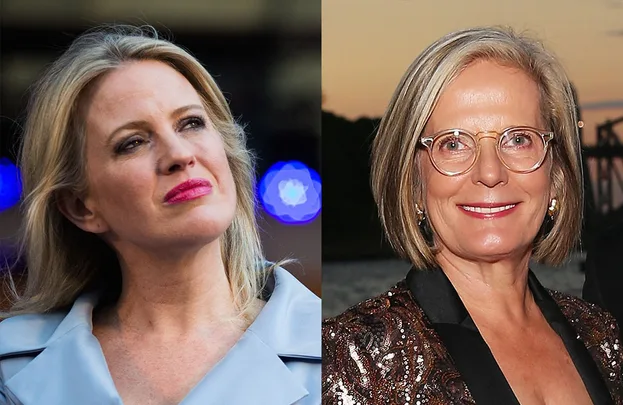 Getty
Getty
